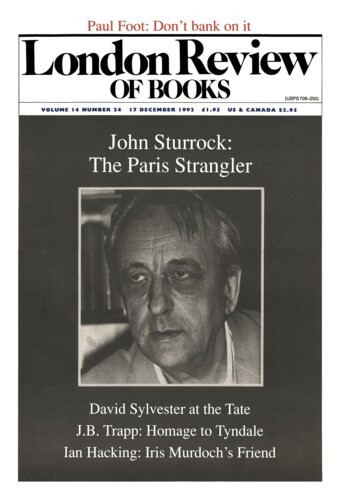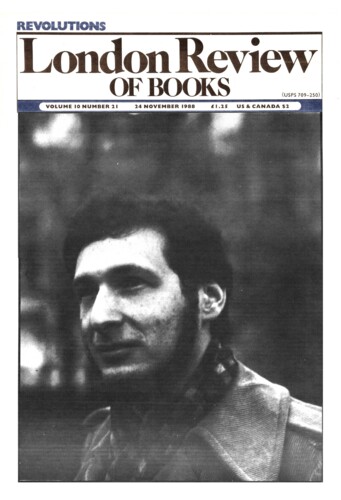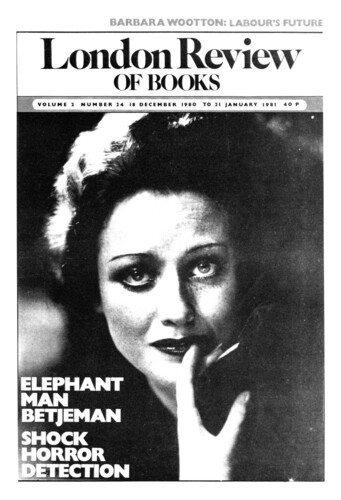Diary: On the Future of the BBC
John Naughton, 17 December 1992
The notion that the BBC is independent of the government of the day is one of those quaint constitutional myths by which Britain is governed, like the doctrine of ministerial accountability or the notion that no tawdry political thought ever crosses the mind of the Attorney-General. It is true that the Home Secretary (or, nowadays, the Heritage Secretary) does not park his tanks on the Director General’s lawn. But then he doesn’t need to. After all, the government chooses the Governors of the BBC and, through the licence fee, sets its income. If things get rough then the Special Branch can always be sent in (as they were during the Zircon affair). There is also the clause in the BBC’s licence which gives the Home Secretary the power to march in and take possession of all or any of the BBC’s ‘stations, offices and works’ if he thinks an emergency has arisen. These things apart, the BBC is completely independent.




